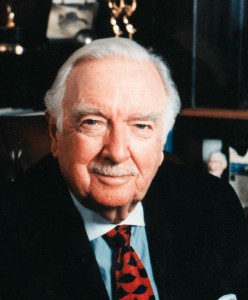Bill Keller has responded to the New York Times’ public editor’s unflinching critique of errors made in a piece about Walter Cronkite by Alessandra Stanley, as part of a Q&A with James Rainey from the LA Times, published in full on Editor & Publisher.
Keller suggests that the public editor’s position is still ‘much debated’:
[James Rainey]
Q: Has the public editor helped build the Times’ reputation, or done more to knock the paper’s reputation down? It may help to address this question both as it pertains to this particular episode and, more generally, over the brief history of public editorship.
[Bill Keller]
A: On balance, I think the fact that we offer a paycheck and a platform to an independent critic to second-guess our journalistic judgments is good for, pardon the expression, the brand. I don’t always agree with our public editor, but I think he is fair-minded, his reporting is meticulous, and his targets – as in this case – are usually fair game. He doesn’t just blow raspberries. He tries to explain how bad things happen, and he reports what we are trying to do to avoid future mistakes. Whether a public editor should be a permanent, or at least continuing, fixture at The Times is a question much debated within our walls. I’ve kicked it down the road until we near the end of Clark’s term next year.
UK-related:
Journalism.co.uk is aware of full-time newspaper ombudsmen at the Guardian [Siobhain Butterworth] and the Observer [Stephen Pritchard] and yesterday learned that Sally Baker is feedback editor for the Times. Does anyone know of any other UK titles with full-time and independent readers’ editors? And do those without one need one?
 America has lost a top celebrity anchorman, whose news delivery was so influential, he came to be called ‘the most trusted man in America’.
America has lost a top celebrity anchorman, whose news delivery was so influential, he came to be called ‘the most trusted man in America’.